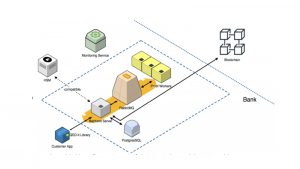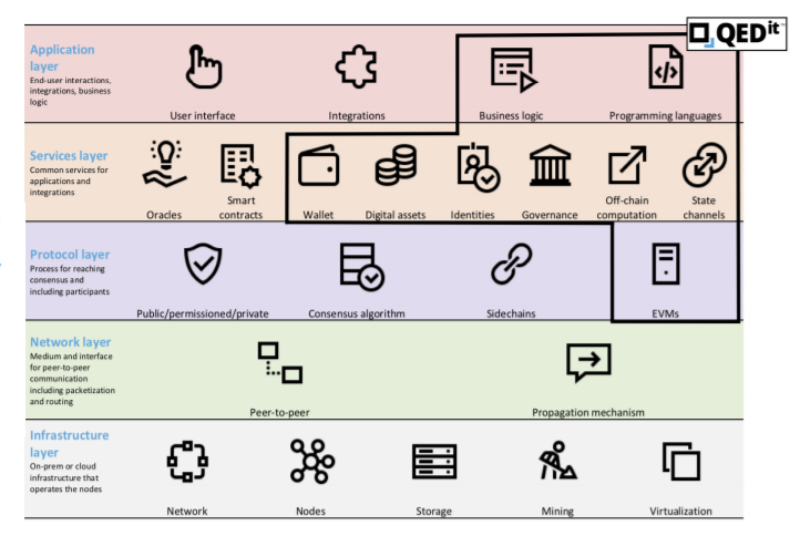
Jonathan Rouach, CEO and Co-founder of QEDIT said, “QEDIT is thrilled to be partnering with Tradeshift to launch this next generation data privacy solution making new types of trade finance offerings possible. The QEDIT-powered marketplace, which will provide a zero-knowledge proof privacy layer on a permissioned-based blockchain, is useful in many business transactions and can be designed to open new revenue channels for financiers, and solve cash flow problems for small and medium-sized businesses. We invite financiers with an innovative mindset to join us in this exciting project. This landmark partnership with Tradeshift is geared towards creating a new category of financing, characterised by reduced friction and broader access for smaller businesses. Once a lofty ambition, we want to facilitate a scenario whereby finance offers can be made with confidence and clarity regarding all the relevant data needed to finalise an offer.”

The problem which QEDIT and Tradeshift address
In distributed ledger technology (DLT, or blockchain), every transaction records on a public ledger shared between all participants. Even in permissioned or private DLT implementations this aspect of DLT presents a fundamental privacy problem for enterprises, one so severe that it may bar the adoption of blockchain technology from use in production.
For example, consider a bank consortium looking to leverage DLT to streamline cross-border payment processing. Instead of using a chain of nostro accounts, the banks will be able to transfer payments direct. However, since all transactions record in a ledger shared them, all the banks’ confidential business information is exposed. When Bank A transfers money to Bank B all other banks can see the transaction details – including who is the buyer and seller plus the amount and asset type transferred.
In practice, every transaction of every bank is visible to all the other banks. This creates a fundamental roadblock for any production adoption of the technology. Furthermore, this glaring problem has led even prominent DLT proponents to concede that it is unlikely banks will adopt DLY technology in its current state due to privacy issues.
Receivables financing has similarities
The receivables financing market has similar characteristics. It tends to be:
- illiquid, opaque and expensive
- largely inaccessible to enterprises
- associated with high friction and extensive requirements for due diligence.
In order to protect trade relationships, order volumes and price points are vital information. They help maintain the competitiveness of businesses everywhere. Until now, requirements to share such sensitive information have often prevented enterprises from requesting finance from bidders in a truly competitive market. What the trade marketplace needs, QEDIT and Tradeshift believe is a solution which:
- proves the quality of the assets to financiers
- preserves the transaction privacy of each transaction’s participants.
With QEDIT technology in place, it is possible to retain the privacy of participants’ assets while lowering the risk for the finance partners. The implication is this will ensure:
- high quality financeable assets for financiers and financing
- cheaper more accessible credit for enterprises.
The QEDIT technology applied
A zero-knowledge proof is a protocol by which one party can prove to another party that they know certain information without revealing the underlying data. Instead of revealing all the transaction details to all nodes, QEDIT generates a proof that the transaction is valid. Other nodes can verify the validity of the transaction without being exposed to the underlying transaction details.
Zero-knowledge proofs, invented in the 1980s, have only recently become practical. While it is trivial to prove this knowledge by simply sharing the underlying data, zero-knowledge proofs enable doing so without the sharing the data. When applied to creating private transactions on a blockchain, a zero-knowledge proof must satisfy three properties:
- completeness: for a true statement, an honest verifier must be completely convinced the statement is true by a proof provided by an honest prover
- soundness: for a false statement, a dishonest prover should not be able to convince a verifier that the statement is true
- zero-Knowledge: the verifier does not learn anything other than the fact that the statement is true.

While generating zero-knowledge proofs is a resource intensive process, required transactions per second rates can be achieved by using QEDIT’s patent-pending proof chaining technology. Proof chaining:
- enables the breaking of break proofs into smaller proofs
- running these in parallel to achieve the required throughput to support real-world use cases.
Founded by a team of entrepreneurs, academic researchers, and developers, QEDIT’s protocol uses zero-knowledge proof cryptography to allow parties that deploy enterprise blockchains to record and authenticate the transfer of assets on a shared ledger without revealing underlying, confidential information. Network members:
- are able to verify the integrity of the proofs
- cannot see who sent what, or how much, to whom.
In addition, QEDIT offers tools for auditors to enable regulatory compliance.
Gert Sylvest, Co-founder of Tradeshift and Head of the research and development unit, Tradeshift Frontiers said, “Tradeshift Frontiers constantly works to create new and innovative opportunities based on data for participants of the Tradeshift platform. Providing affordable finance while protecting participants’ privacy is paramount. This is often a delicate balance, but with the technology provided by QEDIT, it’s no longer about just keeping a balance – it’s going beyond and putting privacy to the forefront to enable new data savvy marketplaces and financing models.”

Enterprise Times: what does this mean
The Tradeshift platform, once underpinned by QEDIT’s privacy solution, will be able to offer financiers meaningful business insights into relationships and transactions of participating enterprises – without needing to share private data. In turn this should mean that financiers on the Tradeshift platform can submit bids for the finance requests. This occurs in private while avoiding double-dipping finance fraud.
QEDIT and Tradeshift are in the process of onboarding trial financiers that want to break ground in this new finance category. If trade finance adopts the QEDIT/Readeshift approach this will demonstrate the removal of one of the key objections to blockchain introduction.


























